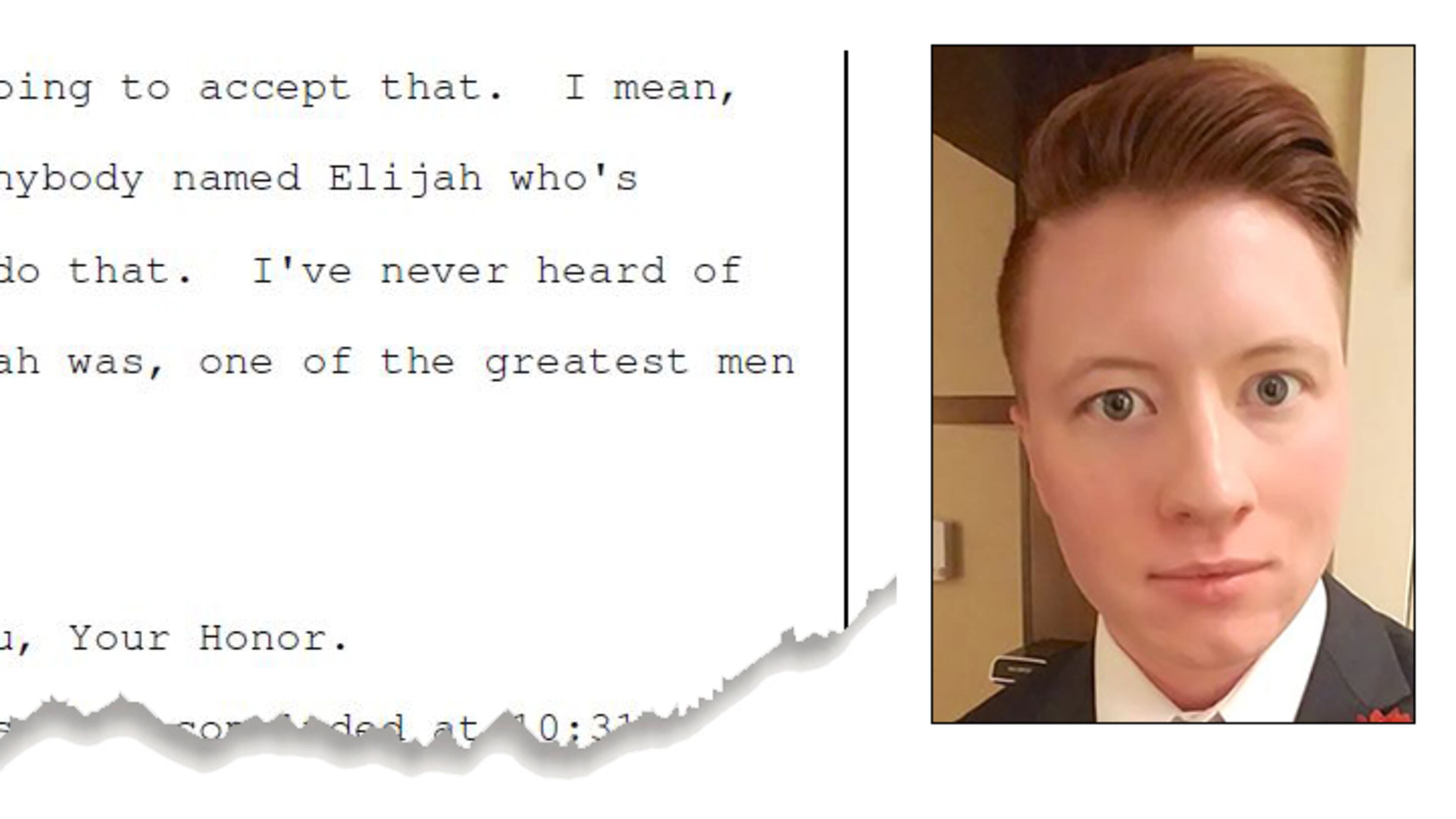Georgia judge refuses transgender man's name-change request

An east Georgia judge has refused to change the name of a transgender man, saying his choice was too masculine and could be misleading and potentially dangerous.
Attorneys for Rowan Feldhaus this week filed a brief with the Georgia Court of Appeals saying that Columbia County Superior Court Judge J. David Roper had overstepped his authority by refusing Feldhaus’ petition to change his name from Rebeccah Elizabeth to Rowan Elijah.
Feldhaus, 24, of Grovetown, was born female but identifies as male. Judge Roper heard the petition for a name change in February and issued an order in March turning it down. He took particular issue with Feldhaus’ choice of Elijah as a middle name.
“I don’t know anybody named Elijah who’s female,” Roper said, according to a transcript of the hearing. “I’m not going to do that. I’ve never heard of that. And I know who Elijah was, one of the greatest men that ever lived.”
Feldhaus, a sergeant in the Army Reserve and a student at Augusta University, said in statement that he felt insulted and objectified to be told he can’t use the name that family, friends and co-workers already use.
“It can be a scary situation when I show up for work or the first day of class and my legal name does not match my public presentation and my gender identity,” Feldhaus said. “I just want to change my name so that it reflects who I am.”
When the court heard his petition, Feldhaus provided the necessary paperwork as well as an affidavit from his therapist confirming he’s transgender and that a name change is important to his treatment for gender dysphoria. Feldhaus also said he was taking hormone replacement therapy with testosterone shots.
According to the hearing transcript, Roper said, “I do not approve of changing names from male to female – male names to obvious female names, and vice versa.” He said the first name of "Rowan" was acceptable because it is gender-neutral.
In his order, issued March 25, Roper said there are no guidelines for this issue in the state's name-change statute nor in appellate decisions on the matter.
Reached by phone on Friday, Roper declined to comment.
Also in his order, Roper said granting a name change and allowing a person to assume the opposite sex creates problems. Among them are restroom safety, and potentially unsupervised children in those restrooms, he said. A name change can also confuse emergency personnel, actuaries, insurance writers and other people involved in situations in which gender might be relevant.
Lambda Legal Senior Attorney Beth Littrell said the decision came as a shock. She said there’s no precedent for transgender people to choose gender-neutral names and asserted that Roper’s decision arose from the judge’s personal opinions and sexist attitudes.
In addition, saying Feldhaus may only choose a gender-neutral name singles him out and violates his constitutional right to expression, a decision for which there is no legal precedent, Littrell said.
“That’s discrimination plain and simple,” she said.
Littrell said other comments from Roper show it’s clear he had an illogical argument, particularly when he said that if Rowan told him Elijah was his mother’s name, the judge could have been more accommodating.
“It really shows that the judge is making it up as he goes along and not following the rules of the law,” Littrell said
She said that, based on reversals of name-change denial cases in the past, she expects Feldhaus will receive his name change. She said she hopes this case can set a precedent for other people, transgender or not, to save anxiety and time in the name-change process.
How to change your name
To change a name in Georgia, the person must fill out a Petition for Name Change, which requires current name, desired name, address, date of birth and a reason for wanting the name changed. That must be filed with the local Superior Court, along with a birth certificate as well as any other relevant documents.
A name can’t be changed to evade creditors or escape criminal liability. The name can’t be a racial slur, obscenity or confusing to people, either.
The petitioner must also file a notice in a local newspaper once a week for four weeks then submit proof of that to the clerk of the Superior Court.
At least 30 days later, the court asks the petitioner to appear at a hearing. The judge may ask questions to make sure the name change aligns with the law, after which he or she will approve or deny the petition.

